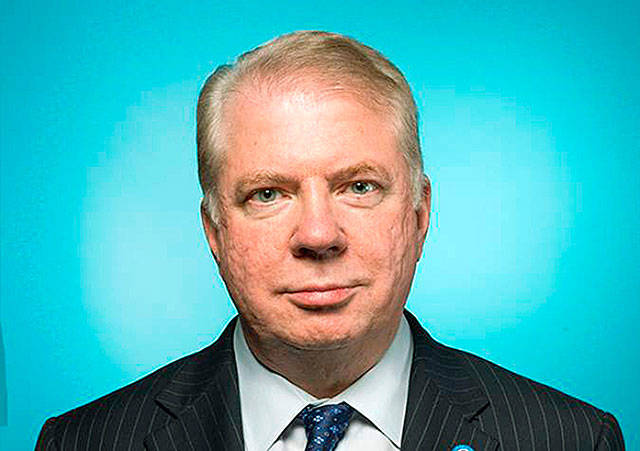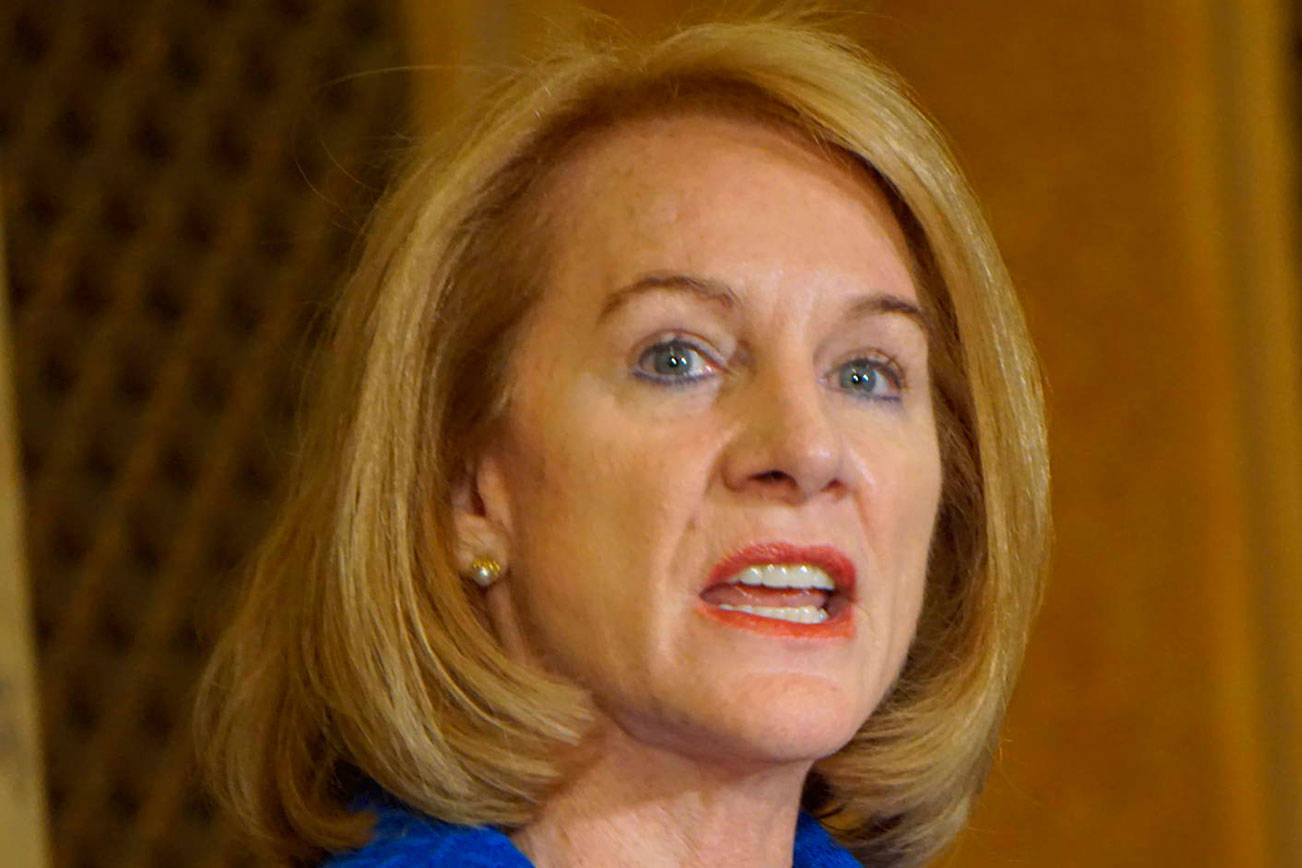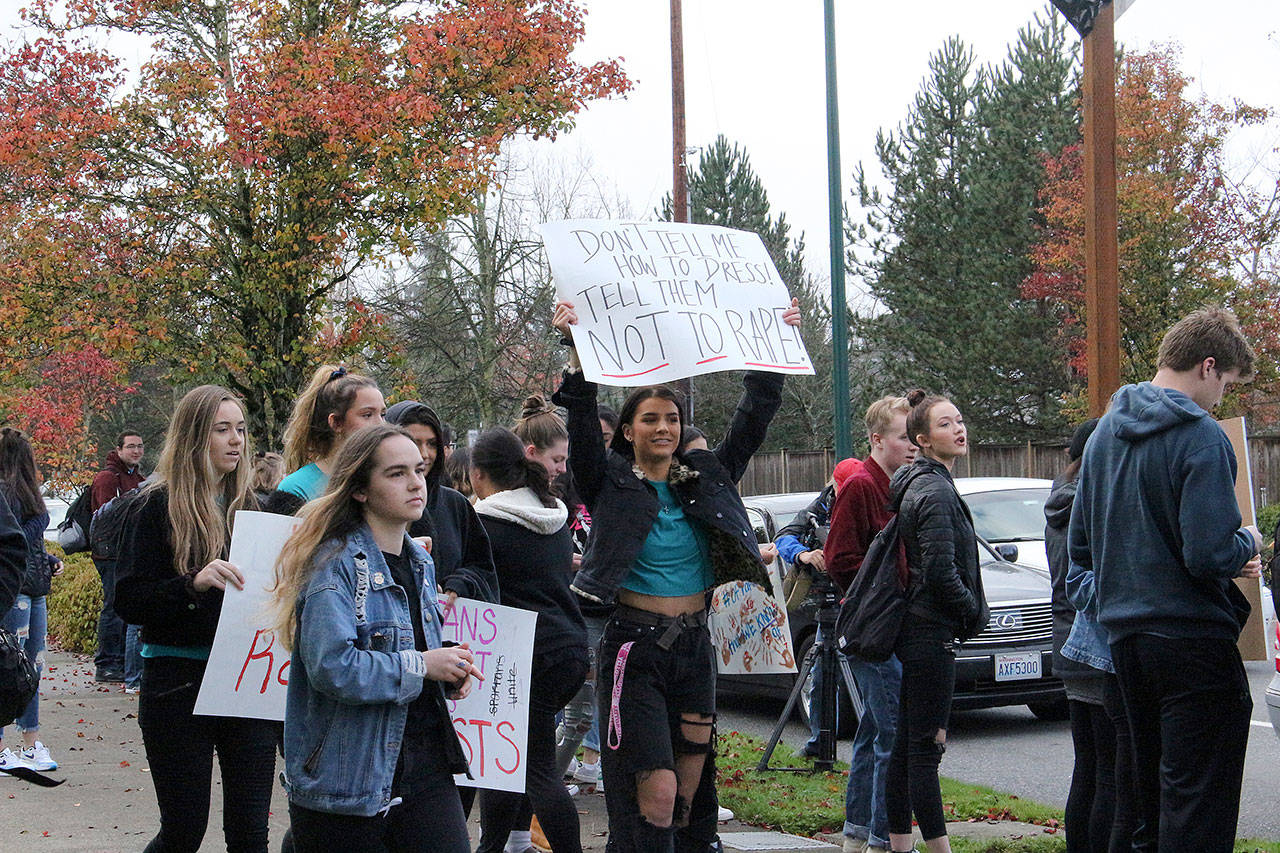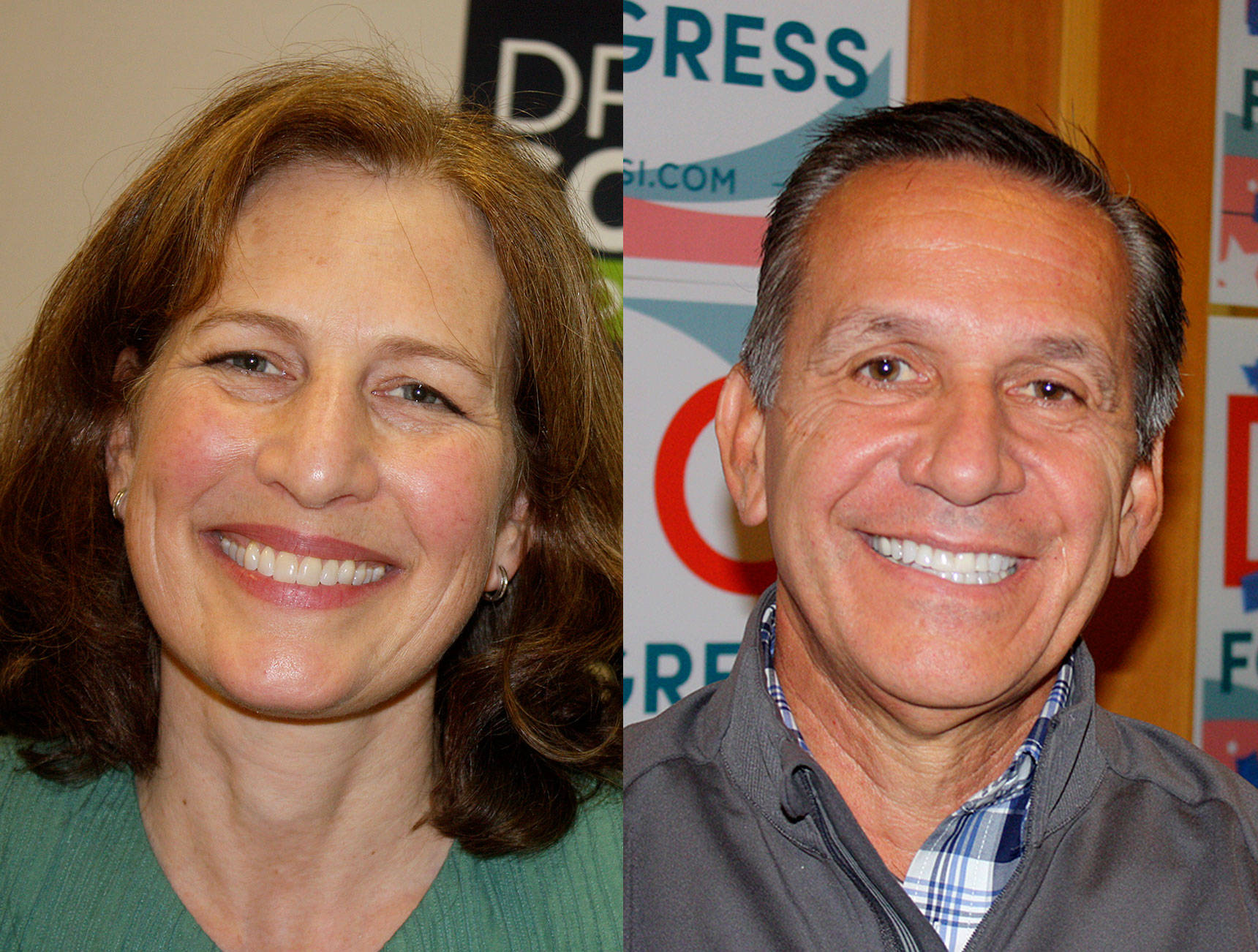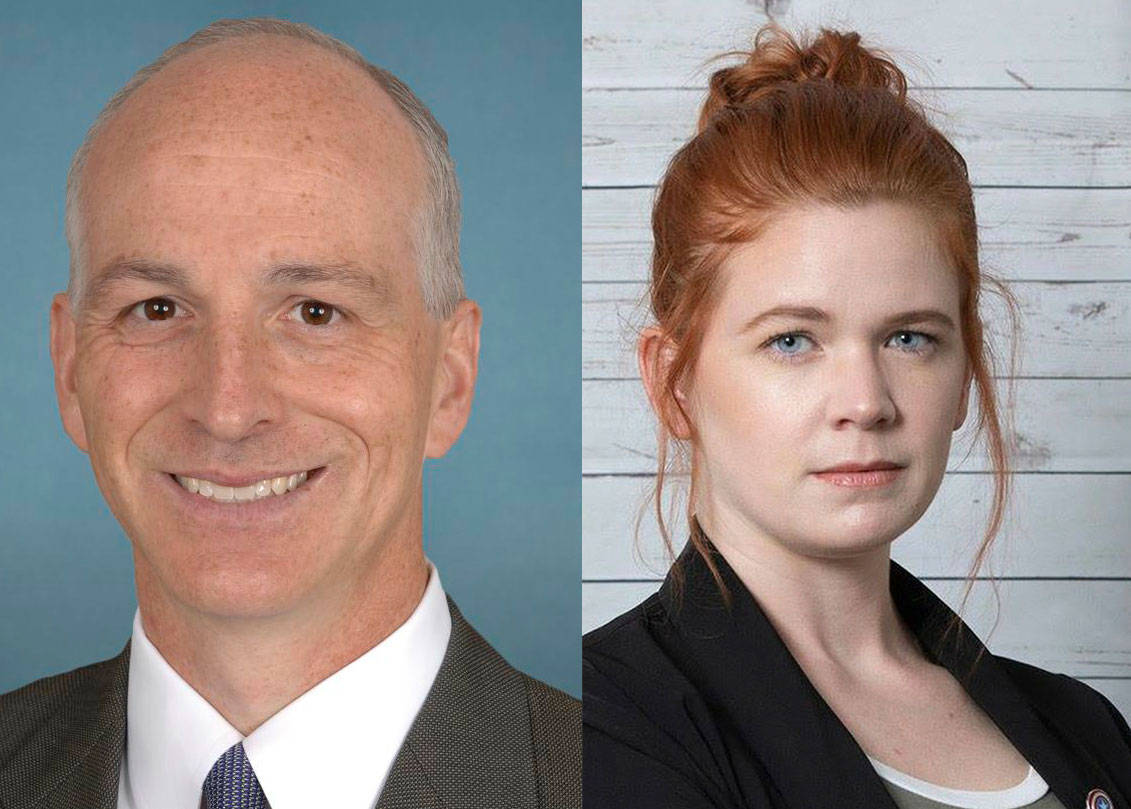Ed Murray Tuesday announced he will resign as mayor of Seattle. The announcement comes after The Seattle Times revealed a new allegation of sexual abuse against Murray, this one from a cousin who says he was 13 at the time of the abuse.
A deafening silence filled City Hall following the revelations of a new accuser and then Murray’s resignation. On the 2nd floor, all the beige doors to all the councilmembers’ offices were uncharacteristically latched shut. (All the doors were closed on the 7th floor too, where the mayor’s office is, but that’s pretty normal.)
In a short statement, Murray maintained his innocence, but said the accusations were hurting the city. “While the allegations against me are not true, it is important that my personal issues do not affect the ability of our City government to conduct the public’s business,” he said.
Council President Bruce Harrell will become acting mayor after Murray’s resignation; he has five days to decide whether to fulfill the rest of Murray’s term. In a written statement Tuesday afternoon, Harrell said, “I intend to make an announcement within the five days on my intentions…The City and continuity of governance comes before all other factors.” If Harrell declines, council will select another councilmember in his place within five days. Either way, once one of the councilmembers have been elevated to the mayor’s throne, council will have 20 days to select and appoint a new, interim councilmember. That process will be similar to that by which John Okamoto replaced Sally Clark in 2015, and the interim councilmember will sit on council until a special election can be held next year. The interim mayor will be replaced as soon as the upcoming general election’s result is certified in late November.
According to a memo on mayoral succession prepared by Harrell’s office earlier this year, it’s not clear whether the councilmember who takes the interim mayor position will be able to return to their council position afterwards. “There does not seem to be Washington case law on this issue,” reads the memo, “and resolution of this question involves an interpretation as to whether a ‘vacancy’…is created under such circumstance.” The City Attorney’s office has given council a written opinion on this subject, but it is protected by attorney/client privilege.
Kshama Sawant was the only councilmember who spoke with reporters. “I don’t want to be mayor,” she said in response to a question about succession, and declined to opine on whether the interim mayor should be Harrell, lame duck councilmember Tim Burgess, or someone else. “I commend all individuals and organizations…who showed courage and leadership in calling on Murray to resign,” Sawant said in a written statement. “Unfortunately, the majority of the City Council failed to show any such leadership.” She urged them to change course by increasing funding for sexual violence prevention and by stopping homeless sweeps. You can watch her full statement here:
Both general election mayoral candidates, Jenny Durkan and Cary Moon, responded to news of the new accuser before Murray announced his intention to resign.
“It is time for Mayor Murray to step down,” Durkan said on Twitter. “I previously urged the Mayor to reflect deeply about whether he could continue to lead and what was in the best interests of the city. It’s clear that it is in everyone’s best interest for him to resign. As a parent, former public official and openly gay woman these allegations are beyond sad and tragic; no official is above the law.”
Moon, who previously called on Murray to resign, said in a written statement, “As a mother I am angry, as a resident of this city I am ashamed…[Murray’s] efforts, as a public official, to demean and belittle his victims is an abuse of the public trust…Claiming the victims are motivated by politics, homophobia, due to a family feud — or suggesting that children shouldn’t be believed — is manipulative and immoral.”
Tuesday night at a candidate debate on housing and homelessness, Moon and Durkan were asked by moderator Enrique Cerna whether Murray’s decision to resign was the right one, or whether it should have come sooner.
“I called on Mayor Murray to resign back in May,” replied Moon, “because I believe sexual abuse and the triggering effect that conversations around the abuse have on survivors is too harmful to our citizens and our residents for Mayor Murray to continue staying in office. I asked him to resign in May. I’m sorry it took so long, I’m glad he did resign today, and I think the main reason is his defending his actions resulted in demeaning and victim blaming for the many young people who came forward—years later, but they were young when it happened—and I think that using the bully pulpit of the mayor’s office to defend yourself and to demean and victim blame is a misuse of public trust, and I wish he had resigned sooner but I’m glad he did today.”
“I’ve been very clear that before the primary I had a conversation with the mayor,” replied Durkan, “and told him he needed to look very carefully at whether he could continue to lead this great city of ours, and if he couldn’t, he should step down. This morning it was clear to me that he could no longer lead as mayor, and I called on him to resign, he chose to do so, and I think that was the right decision, because I think the city needs to focus on some very important, critical issues, particularly the ones we’re going to talk about here tonight. The issues of homelessness, affordability, transportation. This election is not about who’ll be mayor for four years. It’s about what our city will be like for the next generation. So I’m glad we can put those issues behind us and focus on what really matters to our city.”
The subject of Murray’s resignation did not come up again during the debate.
The Seattle Police Officers’ Guild, which as been deadlocked with Murray over contract negotiations for years, responded to the news of Murray’s resignation with a written statement that said in part, “SPOG had high hopes for Ed Murray since he had a strong labor background while a member of the Washington Legislature. Unfortunately, those hopes were never realized.” The statement made no mention of sexual violence.
The Seattle LGBTQ Commission, which had previously called for Murray to resign, responded to news of his resignation with a written statement that said the Commission “is relieved that the ongoing trauma caused by Mayor Murray’s behavior is hopefully coming to a close now that he has resigned.” The Commission singled out Danni Askini, Nikkita Oliver, and Councilmembers M. Lorena Gonzalez and Kshama Sawant for their “true leadership” in pressing for the resignation.
Here is Murray’s full statement:
“I am announcing my resignation as mayor, effective at 5 p.m. tomorrow. While the allegations against me are not true, it is important that my personal issues do not affect the ability of our City government to conduct the public’s business.
“I’m proud of all that I have accomplished over my 19 years in the Legislature, where I was able to pass what were at the time the largest transportation packages in state history, a landmark gay civil rights bill and a historic marriage equality bill. And I am proud of what we have accomplished together at the City during my time as mayor, passing a nation-leading $15 minimum wage, and major progressive housing affordability and police accountability legislation, as well as negotiating an agreement to build a world-class arena that I believe in time will bring the NHL and NBA to Seattle.
“But it has also become clear to me that in light of the latest news reports it is best for the city if I step aside. To the people of this special city and to my dedicated staff, I am sorry for this painful situation. In the interest of an orderly transition of power, Council President Bruce Harrell will become Mayor upon my resignation, and will decide within the following five days whether he will fill out the remainder of my term. During this time Director of Operations Fred Podesta has been tasked with leading the transition.”
news@seattleweekly.com
This post is being updated as information becomes available.
